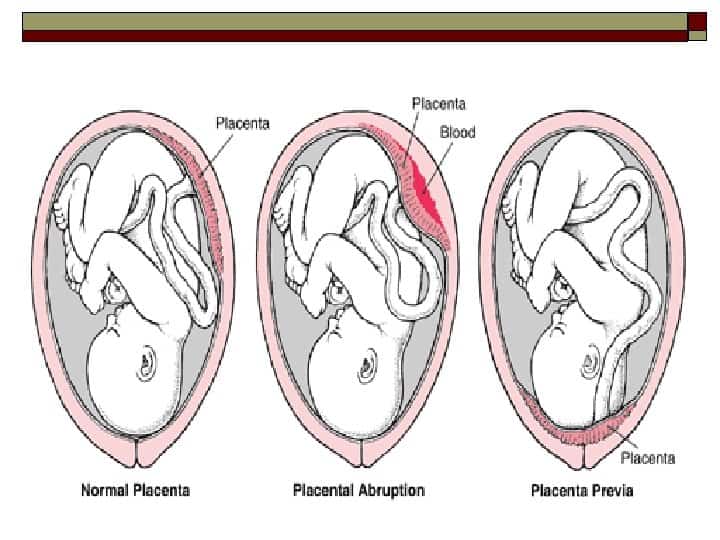
Table of Contents
Most of us are familiar with the term postpartum depression, which is a type of depression that can happen to the mother of a child after she has given birth. But depression can also occur during pregnancy and this is known as antepartum depression.
Research has shown that only 7% of overall pregnant women go through this phase. Even though pregnancy can be exciting, there is a lot of stress and anxiety linked to it, which can worsen depression.
The symptoms of antepartum depression are so aligned with the symptoms of pregnancy that many women don’t even realize that they have depression. But keeping it undiagnosed can lead to complications of your emotional, physical and mental health, the delivery process as well your baby’s well-being. Let’s take a closer look at the meaning, causes, effects, and symptoms of antepartum depression.
What Does Antepartum Depression Mean?
Depression is a common disorder that affects how you think, feel and act. It can happen to anyone at any point in time, and should not be counted as just sadness as you just can’t snap out of it.
Similarly, antepartum depression means depression during pregnancy. The word antepartum means before childbirth. Antepartum depression is also commonly known as maternal depression, prenatal depression, and perinatal depression.
What Are The Symptoms Of Antepartum Depression?
Some of the symptoms of pregnancy overlap with the symptoms of antepartum depression which is why most women might not even know that they have antepartum depression. These include-
- Lower energy levels
- Fatigue
- Changes in appetite
- Changes in sleep
- Changes in libido
Other symptoms of antepartum depression can also include,
- Pregnancy anxiety
- Lack of confidence
- Unplanned pregnancy leading to fear
- Feel like you’re not prepared
- Lose interest in activities you used to enjoy
- Lack of motivation to take care of yourself
- Feel unmotivated to follow a pregnancy health plan
- Poor eating habits
- Inability to gain enough weight
- Unhealthy sleeping pattern
- Smoke, drink alcohol or use drugs
- Suicidal thoughts
What Causes Antepartum Depression?
Just like most other health conditions, you can have antepartum depression for no reason at all. But there are certain conditions and risk factors that give some people a higher chance of having antepartum depression.
1. Lack of social support
Studies have shown that when you have people around you to support you during pregnancy, be it your partner, friends, family, or other moms-to-be, you reduce your chances of having antepartum depression.
You can also choose to join a pregnancy support club, a Lamaze class, or a baby nutrition group. These will not only help you with depression but also allow you to know more about yourself and your baby.
2. Mood disorders
People who already have anxiety or depression are more likely to have antepartum depression when they’re pregnant.
3. Poor sleep cycle
Quality and restful sleep are crucial when you are pregnant. Some studies have shown that there is a link between sleeping poorly and antepartum depression. Improving your sleep cycle will help you prevent antepartum depression.
4. Lack of certain nutrients
Even though a lot of research is still going on this topic, it is usually seen that a deficiency of vitamin D, vitamin B, and minerals like iron and zinc, have a link to depression in women before childbirth.
Screening And Diagnosis Of Antepartum Depression
If you feel you have any of these symptoms, you should consult with your doctor immediately. The doctor is most likely to ask you to appear for a screening test, which is nothing but a questionnaire about how you’re feeling.
Treatment Of Antepartum Depression
Your symptoms might be different from someone else’s. So the only right thing to do here is to consult your doctor and inform them that you might have antepartum depression or may be at risk for it.
Your doctor will suggest the right thing to do, depending on your symptoms.
- Counseling
- Cognitive Behavioral Therapy (CBT) and interpersonal psychotherapy
- Therapy with antidepressant medication
- Getting plenty of exercises
- Eating a nutritious diet during pregnancy
Note: Do not take any antidepressant or medicine without consulting your doctor.
Getting treatment for antepartum depression can reduce the risk of side effects on your little one.
What Are The Effects Of Antepartum Depression On Pregnancy?
Studies have shown that antepartum depression can affect more than just your mental and emotional health. It is also linked to your physical health and your little one’s well-being and cognitive behavior development.
Various health risks can take place during or after pregnancy, like:
- Preeclampsia (high blood pressure and signs of damage to another organ system, most often the liver and kidneys)
- Low birth weight (fetal growth restriction)
- Premature delivery (before 37 weeks of pregnancy)
- C-section delivery
- Postpartum depression (greater risk of developing major depression later on in life, some symptoms include insomnia, loss of appetite, intense irritability, and difficulty bonding with the baby)
Untreated antepartum depression in mothers can also hinder the brain development of their babies. This includes:
- Higher risk of learning difficulties
- Behavioral problems
To Summarize
Do not hesitate to ask for help or support. Antepartum depression is a kind of depression that women may or may not during pregnancy. Every pregnancy is different, so don’t compare yourself to others. Just like any other health condition, we may need medical treatment.
We don’t choose to have depression but we can choose to come out of it for our own and baby’s well-being. Your doctor (OB) will suggest the best plan to treat your depression during pregnancy.










